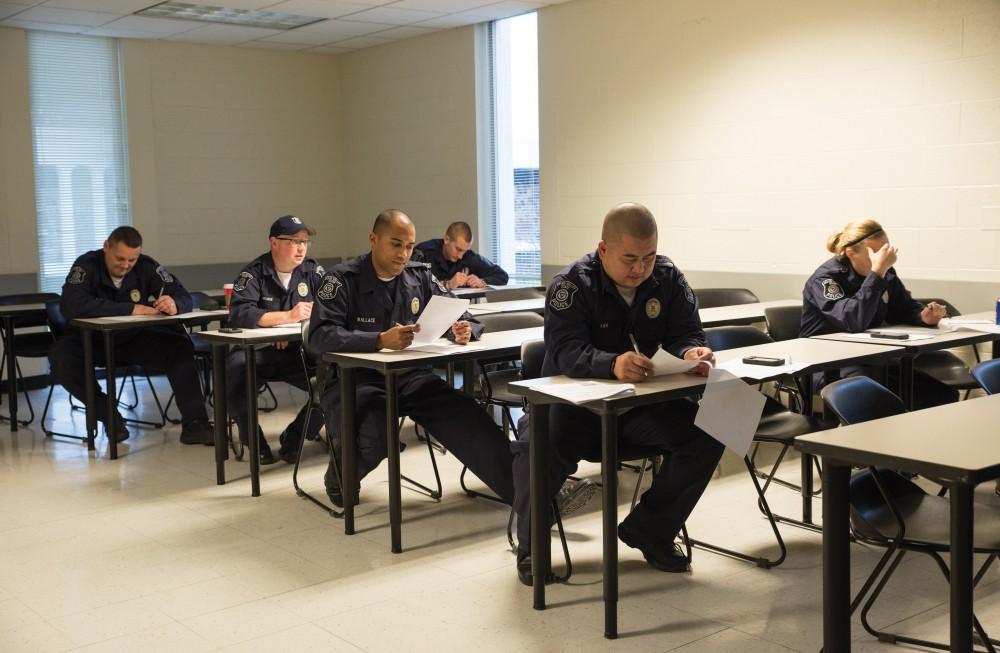‘Help Keep our Water Clean’

GVL / Luke Holmes GVPD police training within Lake Huron Hall Dec. 12, 2015.
Mar 24, 2016
A 2002 study analysis by the U.S. Geological Survey showed that out of 139 streams and rivers in 30 states, 80 percent of waterways tested had measurable concentrations of prescription and non-prescription drugs, steroids and reproductive hormones. Fourteen years later, the push for sustainable practices is more present then ever before, but the risk associated with improper drug disposal is still present.
As part of the “Help Keep our Water Clean” campaign at Grand Valley State University, facilities services has been working to encourage students and community members to practice proper disposal techniques, especially with the academic year coming to an end.
To ensure that prescription drugs are taken care of in a safe way, a drop-off box provided by Ottawa County has been installed in the lobby of the facilities services building for community use.
“As students pack up and begin to leave for the year, it is important that any unused or expired medications are taken to the facilities services building for drop-off,” said Capt. Brandon DeHaan of GVPD.
One concern of improper drug disposal comes from potential drug abuse. Consumers and caregivers should remove expired, unwanted or unused medicines from their home as quickly as possible to help reduce the chance that others may accidentally take or intentionally misuse the unneeded medicine, DeHaan said.
However, a larger issue lies in a seemingly innocent way of drug disposal. When prescription drugs are flushed down the toilet or washed down a drain, they have the potential to cause problems, according to the National Institute of Health.
Experts with the Centers for Disease Control say between 20 and 60 percent of all prescription medicines go unused and end up being thrown away or flushed down the toilet.
When medicines are flushed down the toilet, they’re often not filtered from the water treatment plants because most of the treatment facilities aren’t designed to screen for specific chemicals. Water can also break down the medicines after they’re dumped in a landfill and can seep into ground water.
In order to make the drop-off process as encouraging as possible, the entire process is completely anonymous.
“People can drop off materials at any time,” DeHaan said. “We want people to feel free to take care of their unused materials in a safe way that benefits the entire community.”
All medicines should be kept in their original container so they can be properly identified. Personal information included on labels should be blacked out or removed.
The GVSU drop-off site will accept all medications, including controlled medicines. Any medicines will be removed from the prescription container and placed in a zip-top plastic bag before being discarded in the bin.
“We have seen great success with the box so far from the Grand Valley community,” DeHaan said.
Posters have been placed around campus to inform the GVSU community about the effort. For more information or any questions, contact DeHaan at (616) 331-3255.

























